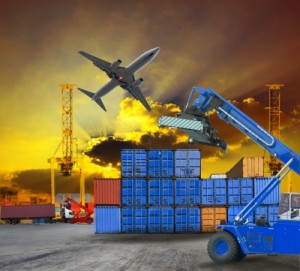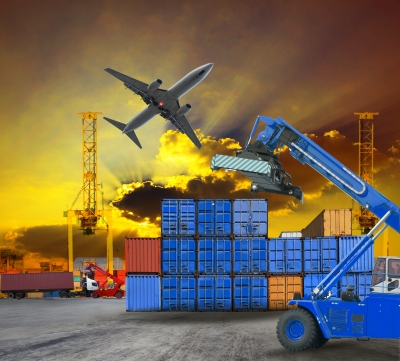 The Philippine government needs to implement reforms geared toward a more liberalized and competitive maritime industry to realize the benefits from the Association of South East Asian Nations (ASEAN) Economic Community (AEC) integration, according to a government-owned think tank.
The Philippine government needs to implement reforms geared toward a more liberalized and competitive maritime industry to realize the benefits from the Association of South East Asian Nations (ASEAN) Economic Community (AEC) integration, according to a government-owned think tank.
In its most recent discussion paper entitled “Furthering the Implementation of AEC Blueprint Measures”, the Philippine Institute for Development Studies (PIDS) said the cabotage policy, the 60-40 foreign equity rule, and the problematic ports regulatory structure remain hindrances in the Philippines’ compliance to the 70% allowable foreign equity commitment under the AEC.
“The entry of foreign maritime companies is still restricted by the constitutional rule on the 40-percent foreign equity limit,” PIDS said, but acknowledged that changing the Constitution would be a “highly contentious issue and requires tedious legislative process.”
The 60-40 foreign equity rule applies to all subsectors except for maintenance and repair, where the entry of 100% foreign-owned firms is allowed by virtue of Presidential Decree (PD) No. 666.
Cabotage policy
The country’s cabotage policy, PIDS said, “remains as the main issue for the inland waterways sector.” Republic Act (RA) 9295 (Domestic Shipping Development Act of 2004) only grants franchise, certificate, or any other form of authorization for the carriage of cargo or passenger, or both, in the domestic trade, to domestic ship owners or operators. Foreign vessels need to seek a special permit from the Maritime Industry Authority (MARINA) if they are to transport passengers or cargo between ports or places within the Philippine territorial waters where no domestic vessel is available or suitable to provide the needed shipping service.
PIDS said a “phased lifting of the cabotage law may be the most preferable action since the immediate blanket removal of cabotage restrictions could be disruptive.”
The think tank said “addressing the cabotage issue significantly depends on the political will of legislators, regulatory agencies, and other concerned stakeholders” since it entails not only amendment of the constitution but also the review of other policies (e.g. ‘one port one operator’ policy) that govern the sector.
The phased lifting considered arguments of the Philippine Inter-island Shipping Association (PISA), the umbrella group of the country’s maritime associations.
PISA argued that high domestic shipping cost is not the result of lack of competition (i.e., cabotage policy); rather, it is due to various converging factors such as: lack of economies of scale resulting in small parcels of goods transported; imbalance of trade between South (Harbor) and North (Harbor), between consumer and production areas; lack of road and port infrastructure that causes downtime and makes delivery system turnarounds inefficient; truck bans; local government units’ informal toll fees or accommodation fees; and high costs of port operations (arrastre charge and other fees).
PIDS said PISA claimed it is open to the idea of competing with foreign-flag vessels “provided that the government will level the playing field for the Philippine-flag vessels (i.e., apply the ‘same tax regimes such as duty and tax-free fuel, parts and supplies as well as remove the restriction under Presidential Decree 1221 for domestic ships to undergo repairs with MARINA-registered shipyards only).”
PISA instead recommended the following policy actions in response to the high domestic shipping costs and cabotage issue: create a national development plan to cluster manufacturing and production centers around port and airport infrastructure; and lower the operating costs of domestic ships (i.e., leveling the playing field in terms of tax regime, ‘reducing manning complement of domestic ships’, providing domestic ships the option to dry dock their vessels either in the Philippines or outside (which is generally cheaper).
Other restrictions
When it comes to new domestic services providers, policy restrictions also exist in cargo handling, port operations, and container stations and depot services, PIDS noted.
“In particular, there is only one winning bidder for port superstructures, subject to Republic Act (RA) 9184, whilst there exists only one operator per terminal for cargo-handling services,” it pointed out.
Since foreign providers are subject to the foreign equity rule, they are required to enter into a joint venture with a domestic company to penetrate the market. Foreign firms are allowed to form subsidiaries, branches and representative offices, except in the internal waterways sector, where only representative offices are allowed.
In the area of operations, the same restriction on cargo reservation (PD 1466) continues to apply, PIDS said. That is, the Philippine Shipper’s Bureau (PSB) requires that all government cargoes and those cargoes owned by private entities with government loan, credits and guarantees be loaded on a Philippine-flag vessel; otherwise, a waiver must be secured.
It must be noted though that the PSB has already been dissolved as part of the Department of Trade and Industry’s (DTI) rationalization plan. PSB’s functions have now been split into two divisions: Fair Trade Enforcement Bureau and Supply Chain and Logistics Management Division, both still under the DTI.
As for terminal handling costs, PIDS said there is a need to differentiate terminal handling cost as charged by international shipping lines from the Philippine Ports Authority (PPA)-imposed vessel charge and other port charges. PPA charges are non-negotiable, the study noted, and the port agency only imposes a tariff ceiling, which can go down provided the interests of government are not prejudiced.
Moreover, terminals are “restricted” in the activities that they undertake based on the management contract between the PPA and the private operator, PIDS noted.
Thus, the think tank said, “The 60-40 rule that is still prevalent in other maritime services needs to be quickly addressed as the government had committed to liberalize up to 70 percent allowable foreign equity.”
However, it admitted this would require amending the Philippine Constitution, which would not be an easy undertaking.
Port-related concerns
Acknowledging there are other factors significantly contributing to high domestic shipping costs, PIDS noted “there is also a need to address the port-related problems such as inadequate or inefficient port practices.”
“Relatedly, there is also the issue over the PPA’s ‘dual’ function as both port regulator and port operator.” Likewise, the ‘one port, one operator’ policy still existing in some ports remains a significant barrier in the upcoming economic integration, PIDS said.
The creation of a single market and production base serves as the principal goal and component of the AEC, which is one of the pillars of the ASEAN community.
To attain such goal, individual countries must implement policies and reforms that would facilitate the free flow of goods, services, investments, capital, and skilled labour. The AEC Blueprint, which was created in November 2007, provides the guidelines for the implementation of the AEC, one of which is liberalization of services. Services include maritime transport, telecommunications, health services, medical professions, tourism, and banking and insurance. – Roumina Pablo
Image courtesy of khunaspix at FreeDigitalPhotos.net





